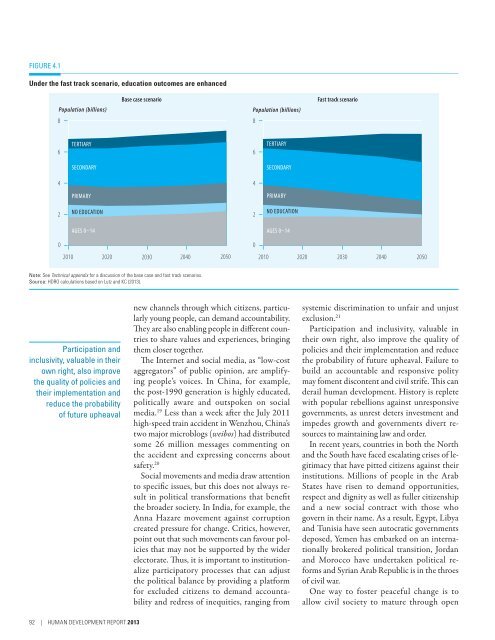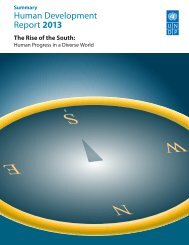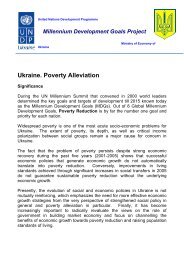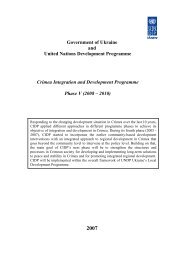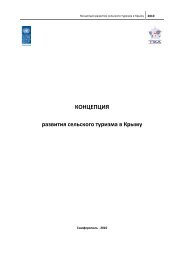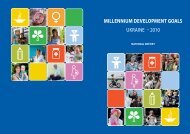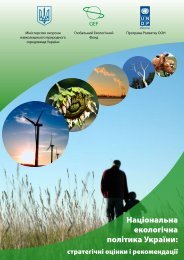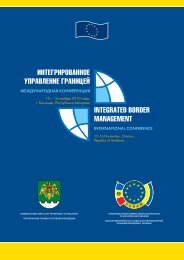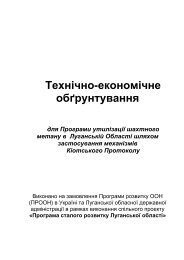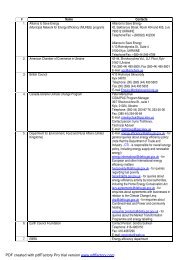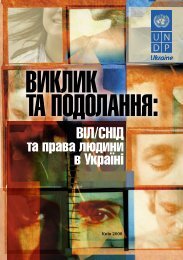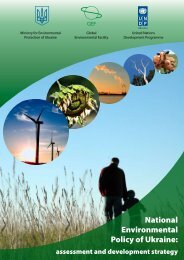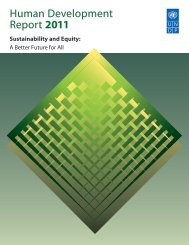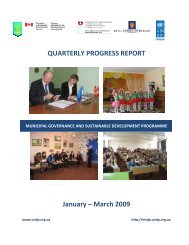E N S W - United Nations Development Programme
E N S W - United Nations Development Programme
E N S W - United Nations Development Programme
Create successful ePaper yourself
Turn your PDF publications into a flip-book with our unique Google optimized e-Paper software.
Figure 4.1<br />
Under the fast track scenario, education outcomes are enhanced<br />
Population (billions)<br />
8<br />
Base case scenario<br />
Population (billions)<br />
8<br />
Fast track scenario<br />
6<br />
TERTIARY<br />
6<br />
TERTIARY<br />
SECONDARY<br />
SECONDARY<br />
4<br />
4<br />
PRIMARY<br />
PRIMARY<br />
2<br />
NO EDUCATION<br />
2<br />
NO EDUCATION<br />
AGES 0–14<br />
AGES 0–14<br />
0<br />
0<br />
2010<br />
2020<br />
2030<br />
2040<br />
2050<br />
2010<br />
2020<br />
2030<br />
2040<br />
2050<br />
Note: See Technical appendix for a discussion of the base case and fast track scenarios.<br />
Source: HDRO calculations based on Lutz and KC (2013).<br />
Participation and<br />
inclusivity, valuable in their<br />
own right, also improve<br />
the quality of policies and<br />
their implementation and<br />
reduce the probability<br />
of future upheaval<br />
new channels through which citizens, particularly<br />
young people, can demand accountability.<br />
They are also enabling people in different countries<br />
to share values and experiences, bringing<br />
them closer together.<br />
The Internet and social media, as “low-cost<br />
aggregators” of public opinion, are amplifying<br />
people’s voices. In China, for example,<br />
the post-1990 generation is highly educated,<br />
politically aware and outspoken on social<br />
media. 19 Less than a week after the July 2011<br />
high-speed train accident in Wenzhou, China’s<br />
two major microblogs (weibos) had distributed<br />
some 26 million messages commenting on<br />
the accident and expressing concerns about<br />
safety. 20<br />
Social movements and media draw attention<br />
to specific issues, but this does not always result<br />
in political transformations that benefit<br />
the broader society. In India, for example, the<br />
Anna Hazare movement against corruption<br />
created pressure for change. Critics, however,<br />
point out that such movements can favour policies<br />
that may not be supported by the wider<br />
electorate. Thus, it is important to institutionalize<br />
participatory processes that can adjust<br />
the political balance by providing a platform<br />
for excluded citizens to demand accountability<br />
and redress of inequities, ranging from<br />
systemic discrimination to unfair and unjust<br />
exclusion. 21<br />
Participation and inclusivity, valuable in<br />
their own right, also improve the quality of<br />
policies and their implementation and reduce<br />
the probability of future upheaval. Failure to<br />
build an accountable and responsive polity<br />
may foment discontent and civil strife. This can<br />
derail human development. History is replete<br />
with popular rebellions against unresponsive<br />
governments, as unrest deters investment and<br />
impedes growth and governments divert resources<br />
to maintaining law and order.<br />
In recent years, countries in both the North<br />
and the South have faced escalating crises of legitimacy<br />
that have pitted citizens against their<br />
institutions. Millions of people in the Arab<br />
States have risen to demand opportunities,<br />
respect and dignity as well as fuller citizenship<br />
and a new social contract with those who<br />
govern in their name. As a result, Egypt, Libya<br />
and Tunisia have seen autocratic governments<br />
deposed, Yemen has embarked on an internationally<br />
brokered political transition, Jordan<br />
and Morocco have undertaken political reforms<br />
and Syrian Arab Republic is in the throes<br />
of civil war.<br />
One way to foster peaceful change is to<br />
allow civil society to mature through open<br />
92 | HUMAN DevELOPMENT REPORT 2013


